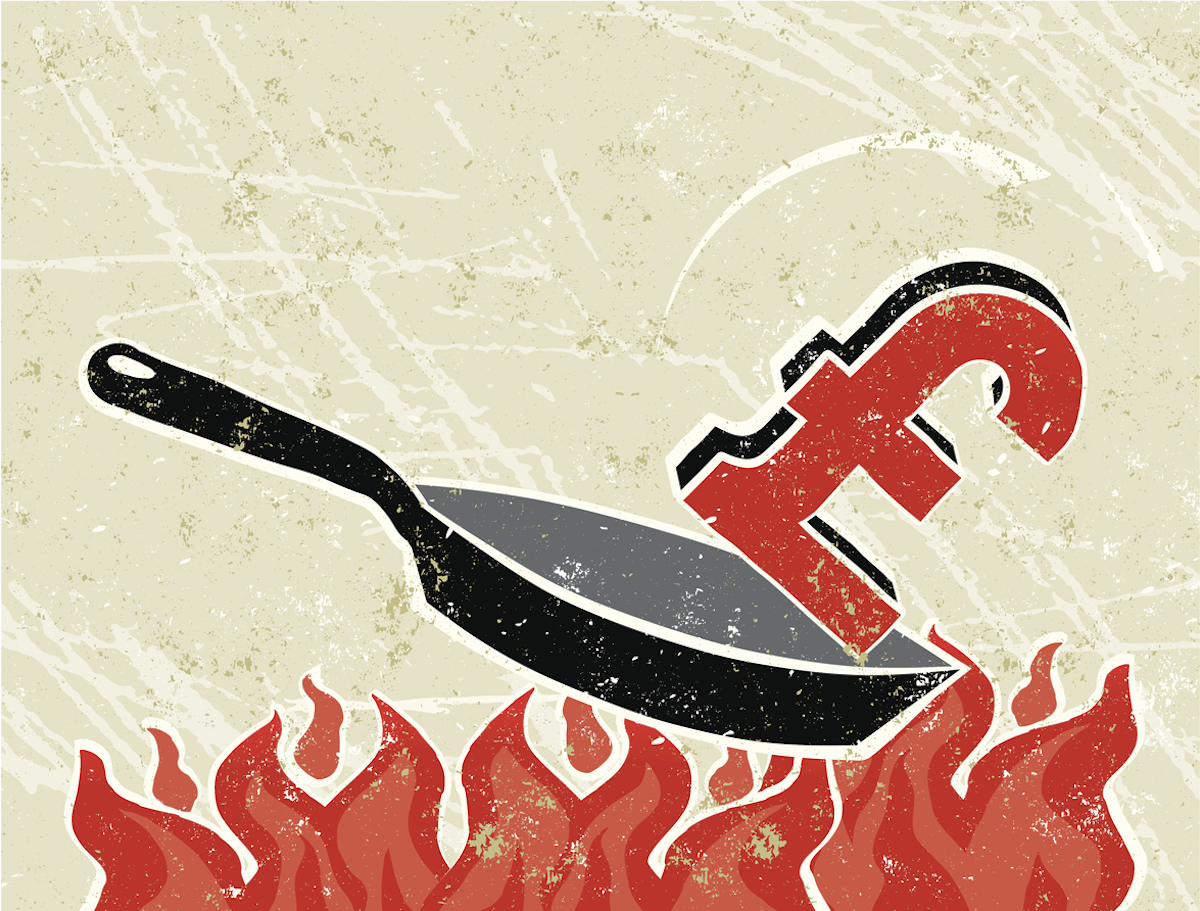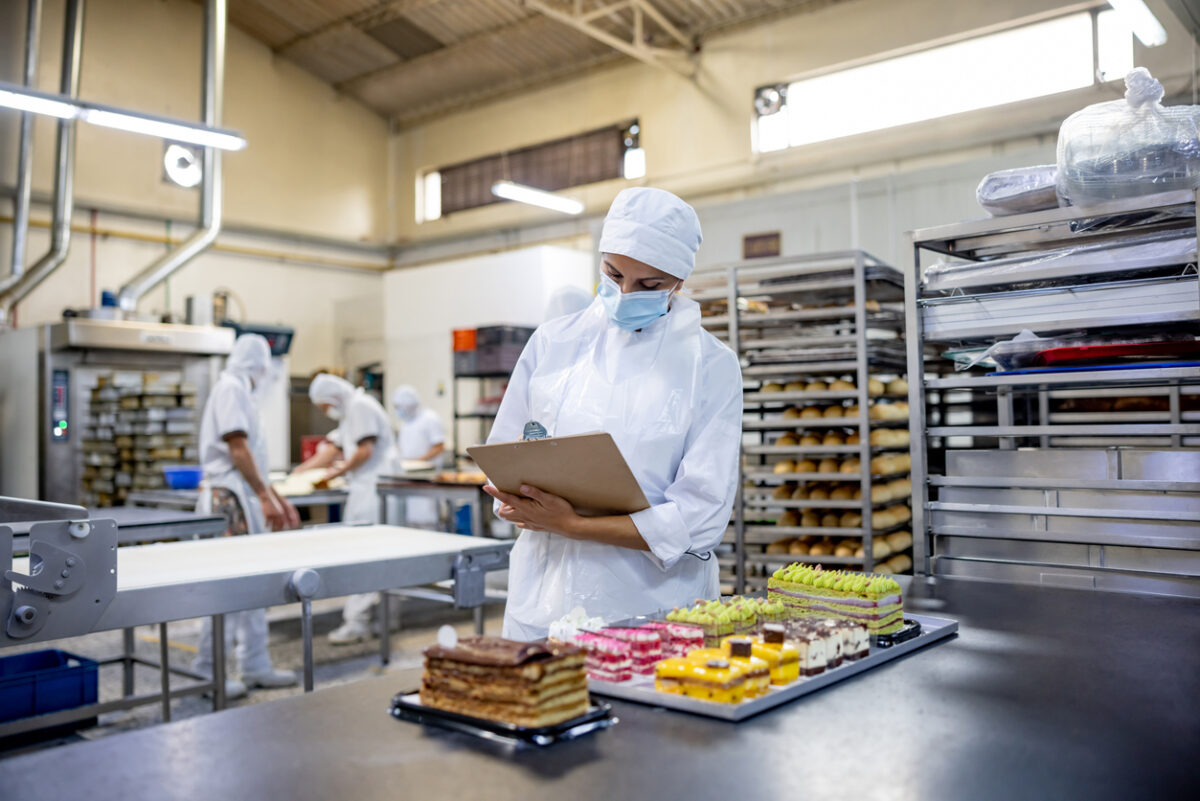Spiking energy and ingredient prices: the solutions independent bakers are adopting to stay afloat

Soaring costs and increasing scarcity of basic ingredients, energy prices rising faster than pizza dough, and a cash-squeezed customer more likely to be bulk-buying pasta than patisserie. It all adds up to a difficult situation for independent bakers. So what solutions are they finding to the challenges they face?
David Stacey is one of those independent bakers currently feeling the heat. He runs Stacey’s Bakery, a fourth-generation family-run bakery with four shops in Derbyshire. It’s been operating since the early 1900s, so he’s well placed to assess how the current situation ranks in terms of pressure compared to previous decades, and the nearest thing he would compare the current situation to is “the early 70s, the winter of discontent. My family worked ridiculously hard through it, my dad always describes he and my grandad working seventy hours a week, but it meant they were able to undercut the competition.
“What we’re going through isn’t pleasant by any stretch of the imagination, but you need to try and think of it as an opportunity. If you can get the customers to come in, despite slightly higher prices, you’re doing well. So, what I’m trying to do at the moment is to be efficient, work hard and look for ways to save money to keep the prices down.”
Still, in September he says there was a “significant drop off” in terms of customers splashing the cash. “People had standing orders for certain loaves of bread, like a premium loaf of bread with stem ginger and cranberry, so quite an expensive one. And they started saying ‘I’m not going to have that anymore, I’m going to just save the pennies and go for a smaller loaf’. It’s been going on for well over a year now. People are definitely being savvier with what they’re spending.“
That impact on spend goes for online operations as well. “I think customers are just more reluctant than ever, understandably, to part with cash,” says Stephanie Giordano, founder of Baked by Steph, an online bakery based in East London. “Spending habits have completely changed. As a small business it’s a case of trying to stay on top of that and finding new products that are more budget friendly. But we’ve seen that impact, there’s a clear correlation to the current situation we’re all feeling.”
The fact is, prices are rising everywhere, and everyone is feeling it, not least ingredient suppliers who are passing their increases onto bakers themselves.
“Wheat and flour are low cost to begin with, so any increase we’ve seen has been minimal in terms of impact on the business,” says Giordano. “Where we’ve felt the most impact is with the price of butter and chocolate. Butter is in every single product we produce, and it went from £60 pounds a kilo to £90 a kilo, it’s up 28%. We order 20 or 30 kilos of butter a week, so that impact is huge. There were the post-Brexit very small increases gradually, then there was a sharp turn where our suppliers all tried to catch up with the impact on them. It feels like it happened overnight a couple of months ago and every supplier in the land just upped their prices. We use chocolate for most of our cakes, and there was a drastic 66% increase. We’d come in on a Monday morning, read the new price list and be like, ‘Am I seeing the right numbers?’ It’s because of logistics, and import taxes, and all the rest of it. They’ve had to increase their prices, and this is just what you’re stuck with.”
Severe
More recently the impact of a sudden burst of avian-flu on the supply of eggs, another key baking ingredient, is a big concern. Supermarkets have begun rationing boxes of eggs to three per person, a situation expected to last beyond Christmas according to the British Free Range Egg Producers Association. It also offered up some stark numbers this week, saying since October 750,000 egg-laying hens had been culled compared to 1.8m over the whole of last year. It also pointed to a 50% rise in the price of feed because of the war in Ukraine, plus the rise in energy costs, and that crucially this was not being reflected in the price retailers were prepared to pay per egg. As a result, at least one third of its members had been forced to scale down production or stopped production altogether.
Richard Fowler, head of Sponge, which offers hand-made cakes and brownies online from its bakery in Norfolk, says: “Avian flu, coupled with the rising cost of production, has led to spiralling costs of eggs nationwide. However, we still continue to source our eggs locally, despite supplies being very limited and high in price.”
To help combat the issue, he says Sponge is paying “close attention to our stock and predicted orders to ensure we can fulfil customer requests over the festive period, but with minimal waste and without panic buying. We are also taking deliveries from various farmers each week and would advise other businesses to take the same approach, as farms are being closed weekly due the outbreak.”
But for Sponge, which typically cracks 15,000 eggs a week, the situation inevitably creates uncertainty for the months ahead. And Fowler says alternatives, like liquid or powdered eggs, are not an option. They may be “cheaper to source and easier to handle” than infamously fragile real eggs, but neither offers the “rise or texture that we pride ourselves on.“
Giordano says you “could use alternatives if you weren’t too worried about the impact on flavour. But I’m always checking our product is as good as it can be. I don’t want to create a substandard product for our customers just to keep prices at a certain point. So, I’m looking at other ways to bring costs down as best I can, and so far, I’ve managed to keep prices the same.
“We’ve been working on bringing on different ways of doing things in terms of productivity, bringing more innovative measures into the bakery, things like edible printing so that we cut labour costs on hand-iced items. Everyone loves them, but anything handmade is always going to cost more. So, we have started offering more off the shelf items to be able to offer customers something within the original price point.
“But it’s tough. You’re constantly having to look at what you’re doing or what the market’s doing. And it feels like at the minute, nothing is secure, it does feel like a daily volatile situation where you’re just constantly thinking about what’s coming next, or which price is going to go up next.”
Crazy
Away from ingredients, and the price of energy is a huge cause for concern across the UK from consumers to corporates. “We only have two ovens, so technically our energy bill is not the biggest bill we pay on a monthly basis,” says Giordano. “But nonetheless, a tripling of a bill is a pretty crazy situation to be in, and really scary. On a monthly basis we were going from spending anywhere between £150 to £250 a month, but our last bill was over £500 and the one before that over £600. It’s up 250% and in terms of what’s sustainable for us over an annual period that’s a big increase and not something we’d expected or planned for.”
For David Stacey, the one thing he can have some level of control over is labour costs, saying “We’re not big enough to sort of negotiate ridiculously cheap prices on sugar, flour is 25% higher than it was 18 months ago if not higher than that, and effectively we’re locked into these higher prices. But I can control how efficiently we can produce things. There is going to be a downturn, so we need to be more efficient.
“Next week, we’re taking delivery of a sausage roll machine, whereas for the last 100 years, they were completely made by hand. There’s no escaping that it’s a three-hour job every day to make 400 sausage rolls, so I’m focusing on machinery we can get that’s not going to compromise the quality, but will improve efficiency. We got a huge freezer last year to freeze the sausage rolls, we make them, freeze them, and bake them, which is standard practice anyway. We’re going to do big production runs, once a week we’ll make 1,000 sausage rolls, it might take three or four hours, but it’s going to take less labour. Basically, we are going to have to increase our product productivity levels.”
The bigger picture remains unpredictable, however. “Uncertainty has been floating around now for two years and it’s a real worry,” Stacey adds. “We had the pandemic, we never shut, but it affected customers coming out. Then we had various Prime Ministers this year, one says one thing, now we have one saying the opposite. I’ve got no choice but to try and invest in the business, but it plays on my mind. Am I doing the right thing? Do we want to invest, or should I close a shop? Or we can stay the same and be more automatic? Food is a good business, because people need to buy it, but it’s a very competitive marketplace. It’s just the uncertainty of how to plan for the future that’s paralysing us a little bit at the moment.”
If there is one bright spot, it’s that Christmas is on the horizon, a time when even the tightest wallets creak open. “Christmas is my favourite time of year,” says Giordano. “It is the ultimate gifting season, which is what we’re here for. E-commerce is going to be down for a while, we’ve accepted that, but Christmas is looking good. I’m really hoping in 2023 we’re going to start to see some of the volatility that we’ve experienced over the past year steady out. That’s my hope.”








